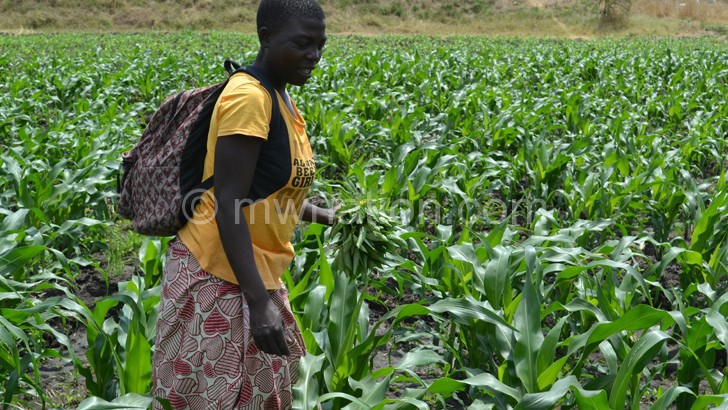Govt in irrigation infrastructure development
Ministry of Agriculture, Irrigation and Water Development is constructing irrigation infrastructure to increase irrigated fields and agricultural productivity and improve farmers’ income.
Speaking at the beginning of a media tour the ministry has organised, chief irrigation officer in the Blantyre Irrigation Services Division, Benson Sumani, said so far 108 000 out of the 408 000 hectares with irrigation potential have been developed.

He said government, with a K12 billion grant from the African Development Bank (AfDB), is constructing structures at irrigation schemes that will increase and stabilise agricultural production in the country.
Sumani said the five-year project, which started in 2010 and has since been extended to June 2016, seeks to provide alternatives to rain-fed agriculture. He added that smallholder farmers in the schemes have been organised to spur this change in direction.
“In the past 14 years, private or commercial farmers have not developed much and erratic rainfall patterns have also affected agricultural productivity,” he said.
Irrigation engineer Cosmos Luwanda said the project is expected to irrigate a total of 1 601 hectares, directly benefitting 4 000 households, adding that it is envisaged that 12 000 households will indirectly benefit from the economic opportunities the increased crop yield will create.
“The project will construct infrastructure in 11 irrigation schemes [in Neno, Blantyre, Phalombe, Mulanje and Thyolo] and six market centres [two in Blantyre and four in the Lower Shire Valley] will be established to link farmers to markets,” he said.
He hinted that the project will also see the construction of a market depot fitted with cooling facilities in Lilongwe.
The construction works which are at varying levels of completion have brought hope in the communities.
At Mtengula Irrigation Scheme in Neno, for instance, farmers whose crops were washed away by floods in January have started cultivating in the areas where construction has been completed. They have so far sold their first harvest of green maize.
“I have sold my green maize harvest at K150 000 and I am waiting for my second harvest before the end of the year,” said Mtengula Irrigation Scheme chairperson, Ronald Mayeso.





